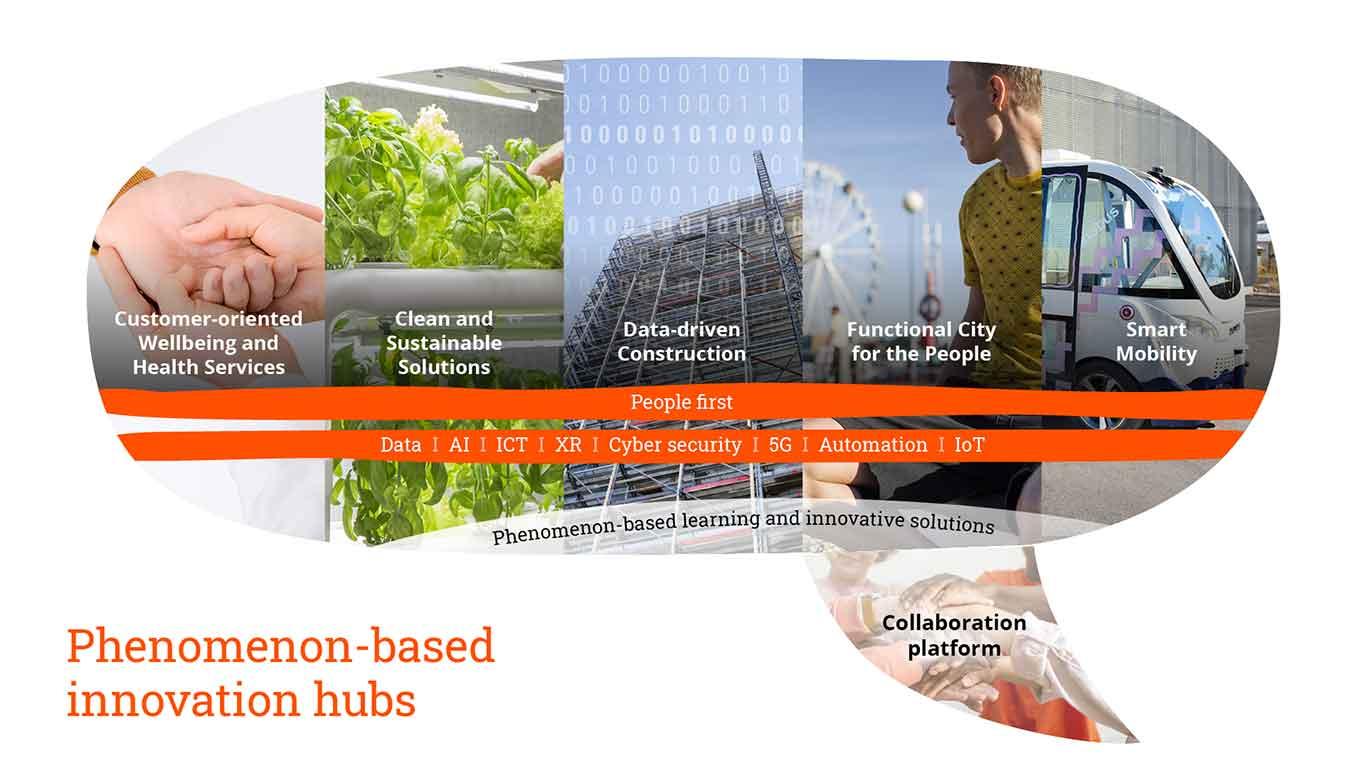The new reorganisation for schools and innovation hubs supports the implementation of Metropolia’s strategy
Metropolia, Finland’s largest university of applied sciences, has recently been organised into a matrix structure of ten schools and five innovation hubs. The Board, composed chiefly of owners’ representatives, approves the strategy and principal investments and makes the highest level decisions. The president leads the management group responsible for the strategic themes: Phenomenon-based innovation hubs, Sustainable development and growth, People and culture and Digitalization. Metropolia’s Board has a lot of expertise from different sectors of society. The HEI could consider that the board should be exposed more deeply to the core plans and decisions beyond economic and financial aspects.
The reorganisation aims to enable the strive for innovation and create an innovative organisation. The audit team considers this a good start to increasing interaction between the different sectors.
The focus areas in the fields of customer-oriented well-being and health services, clean and sustainable solutions, data-driven construction, a functional city for people and smart mobility reflect well the current and expected needs of society. The owners—and the whole society—need skilled and motivated professionals for the relevant present and future areas of employment and entrepreneurship. The ten schools concentrate on education and learning in fields that are near to an ordinary person and will even gain relevance in the future. The interviews provide evidence that the new 4-campus structure is generally supported and is an excellent basis for enhancing the impact.
During the transition phase into a matrix organisation, attention should be paid to clear and regular communication with staff
The matrix organisation of schools and innovation hubs focuses well on enhanced impact renewal through innovation. Sharing limited resources within the organisation is a demanding task and requires attention. The goals of societal impact are well-defined and based on the analysis of Metropolia’s analysis of its operational environment. The strategic intent is communicated well. Metropolia has set strategy-based targets for units, and they monitor the achievement of the targets through real-time reporting and impact reviews. Appropriate procedures are in place within the management system leading the societal impact work, which supports the achievement of set goals and targets.
The organisation is in the transformation phase. Therefore, much work remains to be done to ensure that the whole organisation shares the vision and main strategies. Metropolia should further support the transformation with systematic, explicit, frequent and intensive, top-down and bottom-up communication. Attention should be paid to ensuring that management processes are consistent and flexible enough for the demanding transformation.
The quarterly impact reviews in the intranet present one good example of an open culture. In order to show and emphasise continuous enhancement and quality culture, the most critical metrics and statistics of progress could be more visible and used in communication.
The main actions reflect the strategy well: The new greenfield campus in Myllypuro is in line with the strategic intent of a ‘bold reformer’ and an ‘active partner-building society’. The Family Café on Myllypuro Campus is an excellent example of the societal aspect of ‘putting people first’. Metropolia UAS uses multilevel contacts with external stakeholders in its strategic planning. There is regular feedback from local employers and stakeholders to ensure relevance and future skills for the regional labour market. Being an active member of national and international peer networks is essential in forecasting current and future trends. High-level scenario analysis could be useful for both the Management Board and staff to visualise the future and show direction.

